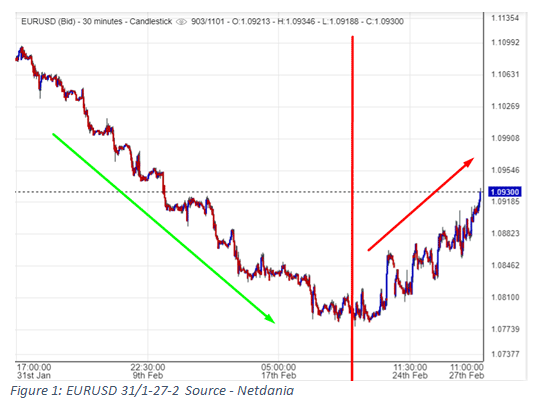LeapRate Exclusive… Jeff Wilkins, Managing Director at IS Risk Analytics (ISRA), part of the ISAM Capital Markets Group talks to LeapRate about the risk management methodology of the “Revenue Share Shops” that exist in today’s FX industry.
LR: Jeff – you feel very strongly about how detrimental these ‘Revenue Share Shops’ are. Can you explain further?

Jeff Wilkins
Jeff: These companies are unfortunately taking on blind risk rather than calculated risks like a credible financial institution, and more frequently these deal structures end on a sour note.
As we know, many Prime of Primes are operating as B-book brokers for the majority of their flow, and at times will setup an account for their clients who hedge their flow, in return for a percentage of the losses on that account – what is known as a “0 downside revenue share.”
The mindset continues to be that all retail flow is loss making and that this flow will definitely yield a profit for the broker and, as a result of this, I believe we are currently witnessing a potential disaster scenario in the making.
LR: Can you give an example of how dangerous this practice can be?
Jeff: The period of 3rd February to 20th February is a good example, perfectly illustrating why a retail broker sending business to a rev share shop can be a bad idea.
Since the beginning of February, traders began entering historically large long Euro positions as the currency weakened and, as we have seen this across ISRA’s clients’ books, have continued to increase long exposure throughout the month. As retail client positions pile up, they endured losses and retail brokers, looking to offload excess EUR exposure, began to offset risk with these rev share shops.
This may seem like a sensible strategy when looked at in a vacuum, but repeated examples have yielded unintended results. Multiple different brokers piling into the same positions with a rev share shop is simply unsustainable for the rev share provider – in fact in many (if not most) cases these firms have a smaller balance sheet than their actual retail broker client.
For these retail brokers accepting this sort of counterparty risk is fundamentally backwards and exposes them to huge potential losses. Whilst these arrangements may seem like a free call option, the reality is that should the Prime of Prime fail, which in these sorts of conditions is a very real possibility, the retail broker’s losses will likely be catastrophic. Such an outcome is something that many firms do not take into account when engaging in these sorts of arrangements.
The absolute peak of Euro long positions was 20th February and for the following five trading days, there has been a sharp rally in the currency. This leaves these rev share shops’ large short EUR positions moving against them, to the detriment of their P&L.
It also leaves a retail brokerage risk desk in a position where they are trying to now predict and time the market with the offloading of hedges – this is not risk management and is not dissimilar from a table game at a casino where they are now trying to predict market moves rather than engaging in genuine risk management strategies.
LR: As flow has become more sophisticated, do you think more needs to be done in terms of flow monitoring?
Jeff: Definitely. Management of trade flow needs to be meticulously monitored and systematically handled in a very calculated manner and, whilst our industry is made up of some incredibly innovative and intelligent companies and individuals there is also, unfortunately, a larger share of shortsightedness combined with either greed or ignorance.
In an industry where flow is becoming more sophisticated and large profits can be lost quickly, revenue share offerings require more due diligence and close inspection than ever before – there are significantly more responsible ways monetize trade flow than blindly sending volume to firms who close their eyes and hope for the best.
You might also like:

